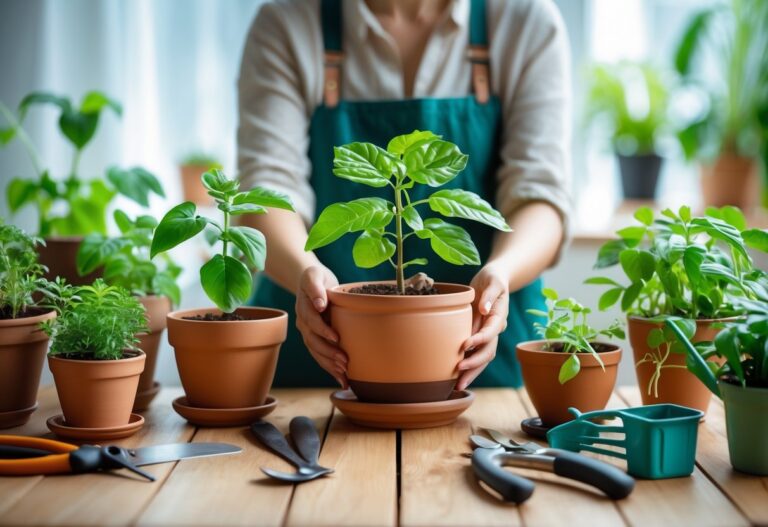Gardening, often perceived merely as a pastime or hobby, holds a significant place in human culture and personal fulfillment. The act of nurturing plants and designing a landscape provides a myriad of advantages that extend far beyond aesthetic considerations. It serves as a bridge connecting individuals to nature, promoting mental well-being, and facilitating a sense of accomplishment.
At its core, gardening embodies a blend of creativity and practicality. Through the establishment of a garden, individuals engage in a creative process that allows them to express themselves while cultivating a living entity. This duality is appealing; it empowers individuals to assert their identity in the arrangement and selection of flora, from vibrant flowers to lush vegetables. Furthermore, tending to a garden can offer a therapeutic escape from the stresses of modern life, fostering a meditative environment where one can find solace and peace.
The physiological benefits of engaging in gardening cannot be overstated. Studies indicate that physical activity involved in gardening—be it digging, planting, or maintaining a landscape—contributes significantly to overall health, enhancing cardiovascular fitness and promoting a balanced lifestyle. Additionally, exposure to soil has been linked to mental health improvements, demonstrating that the process of gardening can hugely impact not just physical, but also emotional well-being.
Moreover, gardening fosters a connection within communities, encouraging interaction and collaboration among neighbors and friends. It serves as a platform for sharing knowledge and resources, strengthening interpersonal relationships. Ultimately, while gardening may begin as a simple, enjoyable activity, its deeper significance, rooted in personal fulfillment, creativity, and community engagement, speaks to the profound importance it holds in various aspects of life. As we explore further, we will delve into these dimensions that affirm the intricate value of this timeless practice.
The Historical Context of Gardening
Gardening, as a practice, holds a prominent place throughout human history, serving not only as a source of sustenance but also as a reflection of cultural values and social structures. In ancient agrarian societies, the establishment of gardens marked the transition from nomadic lifestyles to settled communities. The cultivation of plants allowed civilizations to thrive, providing food, medicinal resources, and materials for various crafts.
For instance, in ancient Egypt, the importance of gardening was emphasized through the cultivation of crops such as barley and wheat, which were crucial to their economy. Gardens in this context were not merely functional; they were also viewed as sacred spaces, often associated with deities, and featured prominently in burial rituals. Similarly, in Mesopotamia, intricate garden designs were integral to their cities, showcasing not only agricultural prowess but also social status.
Throughout history, different cultures have embraced gardening as a means of beautifying their environment. In the Chinese tradition, gardens symbolized harmony and balance, often designed to reflect nature’s perfection. These gardens were meticulously planned, exemplifying the philosophy of living in synchrony with the natural world. The Japanese zen gardens, characterized by their minimalism and tranquility, illustrate another aspect of gardening’s historical significance—its role in promoting mindfulness and spiritual reflection.
As we advanced into the Renaissance, gardening took on additional dimensions, evolving into an art form embraced by the nobility. Botanical gardens emerged, serving as places for scientific exploration and the collection of exotic plants from around the globe. This period marked a shift where gardening became a symbol of knowledge, exploration, and personal expression.
In summary, gardening has reflected the evolution of societies, each era showcasing unique philosophies through their horticultural practices, demonstrating the deep-rooted relationship between humans and nature.
Gardening as a Form of Connection to Nature
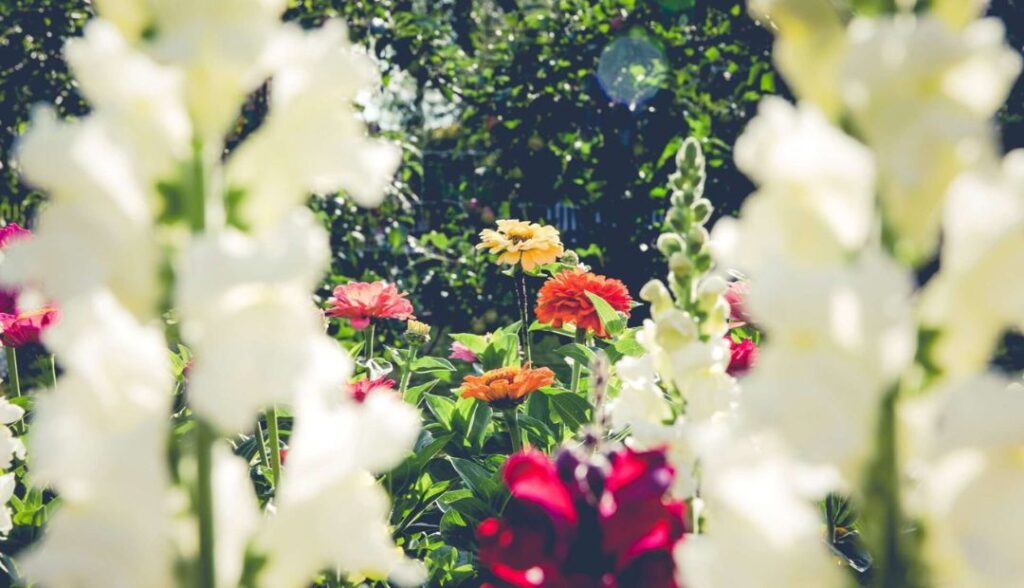
Gardening serves as a profound catalyst for connecting individuals with the natural world, enabling a deeper understanding of our ecological systems. Engaging in gardening provides not only physical activity but also a sensory journey that enhances one’s awareness of the environment. As individuals cultivate their gardens, they partake in various sensory experiences—touching the soil, smelling the flowers, observing the growth cycles, and listening to the sounds of nature. Such experiences foster a bond with the earth, reinforcing the notion that humans are part of a larger ecological tapestry.
The tactile sensation of digging into the earth and nurturing plants can evoke a sense of satisfaction and purpose. The vibrant colors and intricate patterns of flowers spark visual delight, allowing individuals to appreciate the beauty of biodiversity. The aromatic scents of herbs and blooming plants can transport individuals into a state of mindfulness, connecting them to the present moment. These sensory interactions not only heighten awareness of nature’s beauty but also instill a profound respect for the delicate ecosystems that support life.
Moreover, gardening encourages stewardship for the environment. Individuals who actively engage in gardening are often more inclined to consider the health of their surrounding habitat. Conversations about composting, organic practices, and the importance of native plants become common among gardening enthusiasts, illustrating how this activity extends beyond personal enjoyment. Instead, it fosters a community of environmentally conscious individuals who understand the significance of sustainability and ecological balance.
In essence, gardening is more than a mere hobby; it is a powerful avenue for fostering connections with nature. Through sensory exploration and environmental stewardship, individuals can cultivate a sense of belonging within the intricate web of life, ultimately recognizing their roles as active participants in the health of the planet.
Mental and Emotional Benefits of Gardening
Gardening presents a variety of mental and emotional benefits, making it more than just a leisure activity. Numerous studies indicate that engaging in gardening can significantly reduce stress levels and improve overall mood. For instance, a research study published in the Journal of Health Psychology highlights that individuals who spend time tending to their gardens report lower levels of cortisol, the hormone associated with stress. This finding suggests that the act of gardening fosters a calming environment, allowing individuals to unwind and reconnect with nature.
Furthermore, gardening has been associated with increased feelings of happiness and satisfaction. A survey conducted by the University of Bristol found that people who regularly participate in gardening activities experience a boost in their mood, often attributed to the physical exercise involved, the fresh air, and the chance to create something beautiful. The sense of accomplishment that comes from planting seeds and watching them grow is a crucial psychological benefit, providing a practical and visual representation of the effort put in and the rewards reaped.
Additionally, the act of nurturing plants can foster a sense of purpose and responsibility. Many individuals who engage in gardening report feeling a greater connection to nature, which can lead to increased mindfulness. This focus on the present can mitigate anxiety and allow for an escape from everyday worries, contributing to improved mental health. In urban settings, community gardening initiatives have emerged, promoting social interactions and connections among neighbors. Such collaborative efforts can combat feelings of loneliness and isolation, further illustrating the emotional advantages associated with gardening.
In conclusion, the myriad mental and emotional benefits associated with gardening underline its significance as a therapeutic activity. By reducing stress, improving mood, and fostering connections both with nature and within communities, gardening serves as an effective means of promoting overall well-being.
Gardening as a Meditative Practice
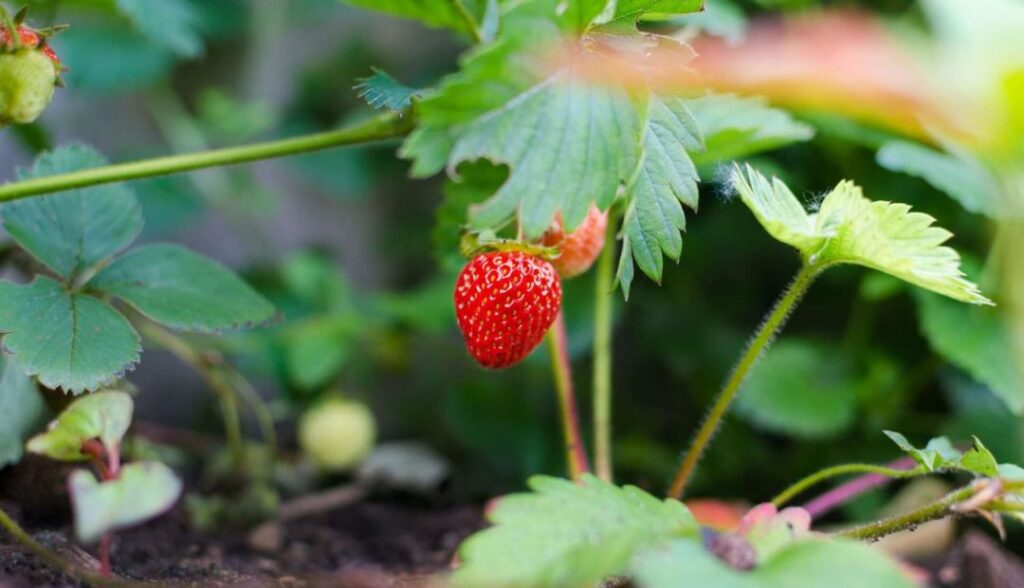
Engaging in gardening can be a transformative experience that transcends mere physical labor. It offers profound meditative benefits that foster mindfulness and tranquility. As individuals immerse themselves in the rhythmic tasks of planting, pruning, and harvesting, they can achieve a state of focus that is akin to traditional meditation practices. This mindful approach allows gardeners to connect deeply with their environment, cultivating not only plants but also a sense of inner peace.
The repetitive actions associated with gardening play a critical role in promoting a meditative state. Tasks such as digging, watering, and weeding can anchor the mind, drawing attention away from the pressures of daily life. The tactile sensations of soil, the fragrances of various plants, and the sounds of nature combine to create a serene backdrop that encourages contemplation. As a result, gardening allows individuals to enter a flow state where their worries diminish, and the present moment takes precedence.
Moreover, tending to plants nurtures a connection to the natural world, which has been shown to have calming effects on the mind and body. Studies indicate that spending time in green spaces reduces stress and enhances overall well-being. The act of nurturing plants not only fosters gratitude for nature’s beauty but also instills a profound sense of responsibility and care. This dual focus on cultivation and connection furthers the meditative aspects of gardening, encouraging individuals to reflect on their surroundings, experiences, and emotional states.
Through mindfulness in gardening, practitioners can experience a journey of self-discovery that promotes emotional resilience and enhances mood. The practice not only yields beautiful flowers or fresh vegetables but also fosters mental clarity and a deep-seated sense of fulfillment. In conclusion, integrating mindfulness into gardening can elevate it from a mere hobby to a meaningful meditative practice that enriches the mind, body, and spirit.
Environmental Significance of Gardening
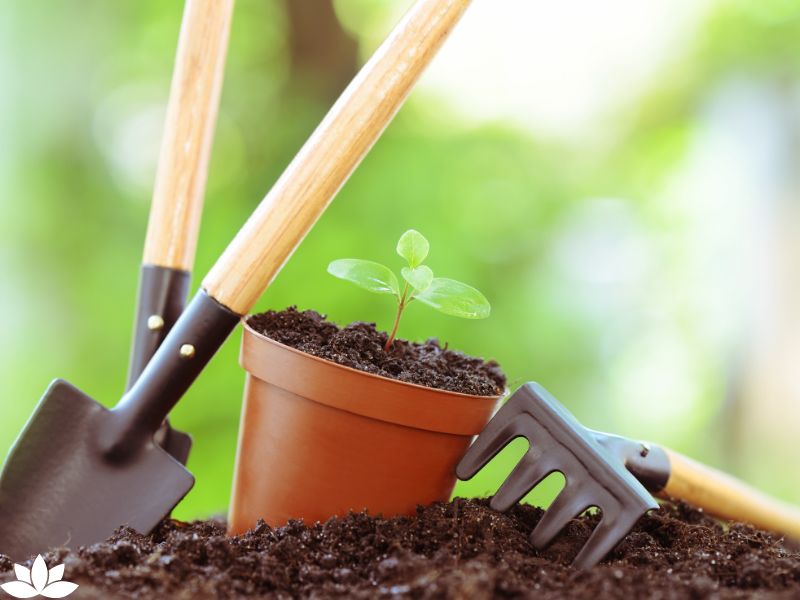
Gardening plays an essential role in enhancing the environment through several important mechanisms. One of the foremost benefits of gardening is its contribution to biodiversity. By cultivating a variety of plants, gardeners create habitats for numerous species, including pollinators such as bees and butterflies. This diversity not only promotes a healthy ecosystem but also assists in the stabilization of local flora and fauna, ensuring that these species can thrive and adapt over time.
Additionally, gardens significantly improve air quality. Plants naturally absorb carbon dioxide and release oxygen—a process crucial for maintaining a balanced atmosphere. Some studies have shown that urban gardening can reduce harmful pollutants and particulate matter in the air, creating a healthier environment for residents. In densely populated areas, the presence of greenery can mitigate the urban heat island effect, further underscoring the importance of incorporating horticulture into city planning.
Sustainable gardening practices also play a critical role in combating climate change. Techniques such as composting, crop rotation, and organic pest management not only reduce waste but also minimize the dependency on chemical fertilizers and pesticides. Community gardens, in particular, serve to educate individuals about sustainable practices, fostering a culture of environmental stewardship among participants. Furthermore, by promoting local food production, gardening can reduce the carbon footprint associated with transporting food over long distances.
In conclusion, the environmental significance of gardening extends far beyond aesthetic appeal. By contributing to biodiversity, improving air quality, and promoting sustainable practices, gardening serves as a powerful tool in our collective efforts to combat climate change and create a more sustainable future.
Gardening as a Community Activity
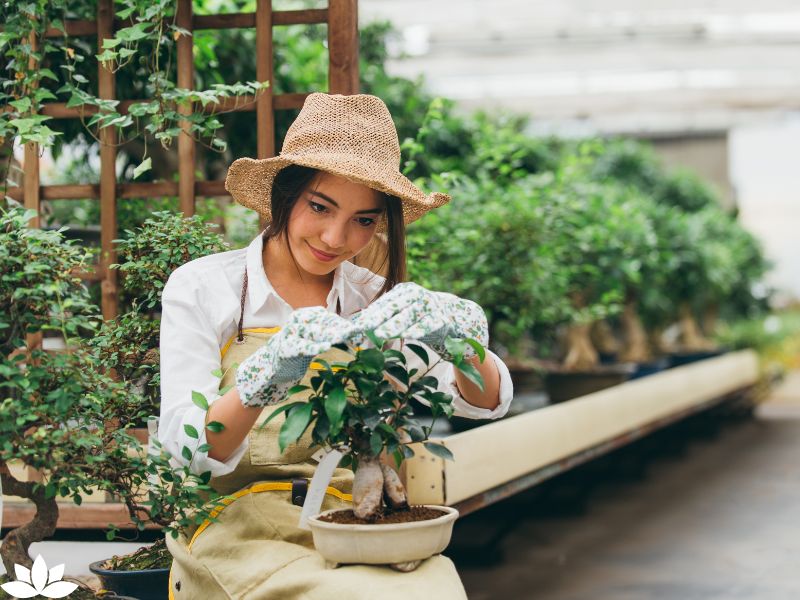
Gardening plays a pivotal role in fostering community engagement and collaboration. Community gardens serve as a vital asset, providing a shared space where individuals from diverse backgrounds can come together to cultivate plants, exchange ideas, and build relationships. These gardens often transform vacant lots into lively spaces filled with greenery, where not only plants thrive but also social connections are nurtured.
The act of gardening itself encourages teamwork and collective effort. Whether through organizing planting days, sharing the responsibilities of maintaining the garden, or participating in seasonal harvests, community members work hand-in-hand. This collaborative endeavor promotes not only an appreciation for nature but also enhances social skills and strengthens bonds among participants. The experiences shared in these green spaces often extend beyond gardening tasks, leading to new friendships and increased community solidarity.
Moreover, community gardens can bridge social gaps that often exist within neighborhoods. By creating an inclusive environment where people of all ages and backgrounds can come together, these gardens promote understanding and cooperation. As individuals collaborate on gardening projects, they engage in conversations that may not occur in other contexts, allowing for cultural exchange and mutual respect. Through this shared passion for gardening, long-standing barriers may dissolve, thus creating a more cohesive community.
In addition to social benefits, community gardens often contribute to the enhancement of local food systems by providing fresh produce to neighborhoods, increasing food security, and encouraging sustainable practices. This not only empowers community members by giving them agency over their food sources but also helps cultivate a sense of pride and ownership in their surroundings. Hence, gardening transcends mere cultivation; it becomes a fundamental thread that weaves individuals and communities together, enriching lives in numerous ways.
Personal Growth Through Gardening
Gardening offers individuals a unique opportunity for personal growth and development. Engaging in cultivating plants not only nurtures the greenery around us but also fosters essential life skills. As gardeners dig into the earth, they encounter a host of lessons, from responsibility to resilience, laying the groundwork for profound personal transformations.
One of the most significant lessons learned through gardening is the importance of patience. Plants take time to grow, and this process mirrors the journey of personal development. Individuals must learn to wait for their seeds to germinate and their blossoms to unfold, cultivating patience not just in the garden but also in life. This skill is vital as it encourages a deeper understanding of the value of the journey versus the final outcome—a lesson with far-reaching implications beyond the gardening plot.
Moreover, gardening instills a sense of responsibility in individuals. Caring for plants requires consistent attention, nurturing, and commitment. This duty to maintain the garden translates into personal accountability, shaping individuals into more responsible members of their households and communities. It encourages them to consider the needs of something other than themselves, fostering empathy and awareness of the interconnectedness of life.
Personal stories highlight the transformative power of gardening. For instance, those who have faced challenges such as mental health difficulties or grief have often found solace in gardening. The act of tending to a garden provides therapeutic benefits, offering individuals a sense of purpose and a constructive outlet for their emotions. Gardening can serve as a form of meditation, allowing for introspection and personal reflection, contributing to improved mental well-being.
In summary, gardening is more than a hobby; it serves as a powerful catalyst for personal growth. The skills acquired, lessons learned, and responsibilities embraced contribute to a transformative journey, enhancing individuals’ lives and fostering a deeper connection to themselves and the natural world around them.
Conclusion: The Lifelong Journey of Gardening
As we explore the profound significance of gardening, it becomes clear that this practice extends far beyond the simple act of cultivating plants. Gardening is a multifaceted journey that encompasses not only the physical growth of flora but also the personal development of the gardener. Engaging in gardening activities provides individuals with an array of benefits, including enhanced physical health, mental well-being, and emotional resilience.
The act of nurturing plants fosters a unique connection to nature, prompting one to reflect on their environment and the role they play within it. This relationship encourages mindfulness, allowing individuals to cultivate patience and understand the rhythms of life. Each season brings new challenges and opportunities, reinforcing that gardening is not merely an activity but a lifelong endeavor that demands adaptability and continuous learning.
Moreover, gardening serves as an avenue for personal growth. As individuals delve into the world of horticulture, they acquire invaluable skills and knowledge, whether it be understanding soil health, pest management, or plant care techniques. This educational aspect not only enriches one’s experience but also instills a sense of accomplishment and pride in one’s work. Furthermore, the community aspect of gardening fosters connections with others who share similar interests, thus expanding one’s social network and support system.
Overall, the journey of gardening invites exploration, experimentation, and creativity. It encourages individuals to embrace their passions and cultivate their understanding of the natural world, ultimately leading to a richer, more fulfilling life. As one reflects on this journey, it becomes evident that gardening is a lifelong pursuit that continues to evolve, offering endless opportunities for personal enrichment and growth.
If you would like to add some relaxing nature sounds, check here.

